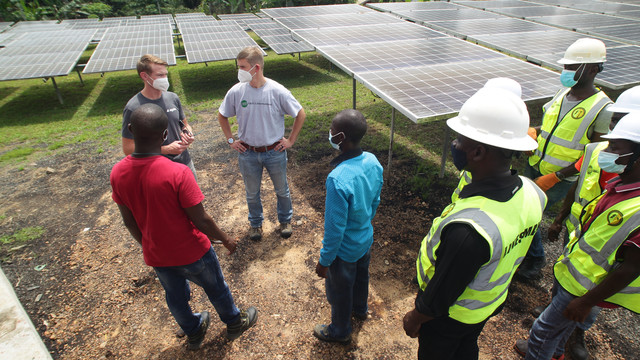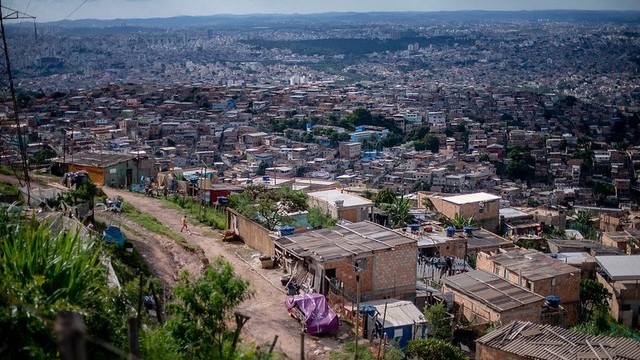2016 UN High-level Political Forum on Sustainable Development
IIED was involved in three side events at the UN High-level Political Forum on Sustainable Development.

The UN High-level Political Forum on Sustainable Development, which was held in New York from 11-20 July 2016, was the first since the adoption of the 2030 Agenda and the Sustainable Development Goals (SDGs) last year. The session included country and thematic reviews of progress on the SDGs.
The forum is designed to provide political leadership, guidance and recommendations on the 2030 Agenda's implementation and follow-up; keep track of progress; spur coherent policies informed by evidence, science and country experiences; as well as address new and emerging issues.
IIED director Andrew Norton was one of several specialist IIED staff and researchers who were present, hosting side events and shaping the debates.
IIED and partner events
Country experiences of putting the Sustainable Development Goals into action with poverty, environment and climate at the centre
Side event
Date: Wednesday, 13th July, 2016
Facilitated by IIED, this side event shared country experiences of how to implement the SDGs to achieve zero extreme poverty, zero net climate emissions and zero net loss of natural capital ('Getting to Zero'). This brought together experiences of countries in the global South and North on how to 'leave no one behind' while taking into account environmental sustainability and climate resilience.
The session looked at empowerment, institutional and finance reforms, new metrics and the launch of this policy framework in a new 'Getting to Zero' report (PDF) by the Poverty Environment Partnership (PEP).
Evaluation: service for future national SDGs reporting
Side event
Date: Wednesday, 13 July 2016
The United Nations Evaluation Group (UNEG), the United Nations Development Program (UNDP), and the EVALSDGs evaluation network hosted this side event which focused on the ways evaluation can contribute towards national follow up and review of progress towards the SDGs.
It also examined how the use of evaluation tools and techniques can serve national reporting, considering a response to national priorities and needs, in order to ensure inclusive and equitable development.
Related reading: Evaluation: a crucial ingredient for SDG success | Counting critically: SDG 'follow-up and review' needs interlinked indicators, monitoring and evaluation
How can national level strategic planning ensure that no one is left behind?
Side event
Date: Friday, 15 July, 2016
Moderators: George Varughese, Development Alternatives, and Masego Madzwamuse, Open Society Initiative for Southern Africa
The Independent Research Forum (IRF) and the Government of Sweden hosted this side event which looked at how countries are addressing "leave no one behind" in high-level strategic planning and evaluation. It showcased the leadership roles and innovative approaches of individual countries, as well as the ways in which high level planning supports political accountability and local and civil society efforts to achieve the SDGs.
The 2030 Agenda's aspiration to "leave no one behind" has implications for a broad range of national government functions, including managing different forms of risk, building economic stability and resilience, providing space for citizen engagement and monitoring progress on strategic national objectives.
By endorsing the 2030 Agenda, governments have implicitly agreed on the need for new approaches to these functions that instill principles of inclusion, equity, sustainability and collective global responsibility into planning and decision-making. Nearly all governments have some influential department or unit with broad responsibility for these functions, often in Ministries of Planning, Finance, or a unit in the office of the prime minister or president. This group of planning decision-makers will be central to integrating the 2030 Agenda goals and principles into national development policies, strategies and planning processes.
Related reading: Q&A: Talking SDG implementation, with Dr Günther Bachmann | Q&A: A pragmatic approach, with Chime Wangdi



